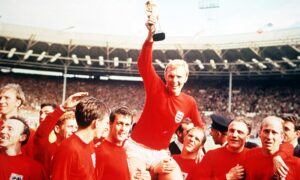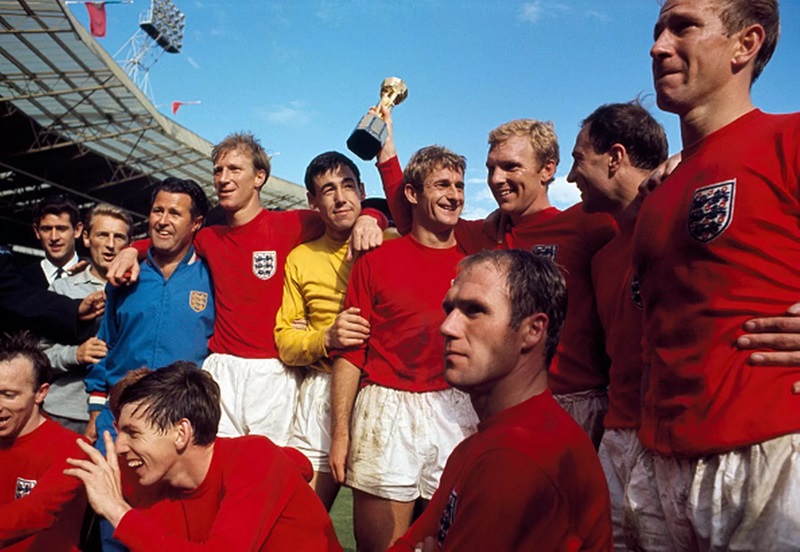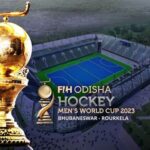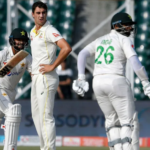Introduction to the 1966 FIFA World Cup
The year was 1966. The world was buzzing with excitement as football fever gripped the globe. The stage was set for a historic tournament that would go down in history as one of the most memorable and controversial FIFA World Cups ever – the 1966 FIFA World Cup.
From high-stakes political tensions to nail-biting matches, this tournament had it all. But amidst the controversies and heated debates, there were moments of triumph that still resonate with football fans today.
Join us as we take you on a journey back in time to explore the untold stories of the 1966 FIFA World Cup – from controversy to triumph, this is a tale that will leave you captivated till the very end! So grab your virtual passport and let’s delve into this fascinating chapter in football history.
Controversies Surrounding the Tournament
The 1966 FIFA World Cup was not without its fair share of controversies. From disputed goals to political tensions, this tournament had it all. Let’s dive into some of the most talked-about controversies surrounding the event.
There was “The Battle of Santiago.” In a match between Chile and Italy, tempers flared, resulting in violent clashes on the pitch. The referee struggled to maintain control as players exchanged punches and kicks. This incident showcased the intense emotions and fierce competition that defined this tournament.
Political tensions also cast a shadow over the World Cup. North Korea’s unexpected success caused an uproar when they defeated Italy in the quarterfinals. Many questioned whether their victory was influenced by political pressure or foul play.
Refereeing controversies were rampant throughout the tournament as well. One notable example is Geoff Hurst’s controversial goal during England’s final against West Germany. The ball appeared to bounce off the crossbar but was ruled as a goal by Soviet linesman Tofiq Bahramov, sparking heated debates that still echo today.
These controversies added an extra layer of drama and intrigue to an already captivating World Cup.
1966 FIFA World Cup
| Tournament details | |
|---|---|
| Host country | England |
| Dates | 11–30 July |
| Teams | 16 (from 4 confederations) |
| Venue(s) | 8 (in 7 host cities) |
| Final positions | |
| Champions | England (1st title) |
| Runners-up | West Germany |
| Third place | Portugal |
| Fourth place | Soviet Union |
| Tournament statistics | |
| Matches played | 32 |
| Goals scored | 89 (2.78 per match) |
| Attendance | 1,563,135 (48,848 per match) |
| Top scorer(s) | Eusébio (9 goals) |
A. The 1966 FIFA World Cup
The 1966 FIFA World Cup was not without its fair share of controversies. One of the major controversies surrounding the tournament was “The Incident” during the quarter-final match between England and Argentina. The game quickly turned into a heated battle, with both teams engaging in aggressive tackles and fouls.
However, it was one specific incident that would forever be etched in World Cup history. Argentine captain Antonio Rattin was controversially sent off by German referee Rudolf Kreitlein for allegedly refusing to leave the field after being booked. This decision sparked outrage among the Argentine players and fans alike, leading to an intense atmosphere on and off the pitch.
Political tensions further heightened during the tournament due to Argentina’s presence. At that time, there were ongoing political conflicts between England and Argentina over sovereignty claims on the Falkland Islands (known as Islas Malvinas in Argentina). This added an extra layer of intensity to their encounter on English soil.
Refereeing controversies were also prevalent throughout the tournament. Many matches saw questionable decisions made by referees that left fans scratching their heads in disbelief. From disallowed goals to missed penalties, these incidents created significant debates among football enthusiasts worldwide.
Despite all these controversies, however, history will always remember this World Cup for its triumphs and iconic moments! Stay tuned for our next blog section where we delve into England’s historic win and Geoff Hurst’s incredible hat-trick performance!
B. Political Tensions
Political tensions were running high during the 1966 FIFA World Cup, adding another layer of intensity to an already highly anticipated tournament. The Cold War was at its peak, and international relations were strained between certain countries participating in the event.
One significant political tension arose between North Korea and South Korea. With both nations fiercely competing on the football field, their matches became symbolic of their ongoing conflict. The atmosphere surrounding these games was palpable, with fans from both sides showing immense national pride and fervor.
Another source of political tension stemmed from England’s controversial decision to host the tournament. Many argued that it was a calculated move by the British government to showcase their strength and superiority on a global stage. This led to some backlash from other nations who felt that hosting rights should have been given to more neutral territories.
Additionally, tensions simmered among Eastern Bloc countries due to ideological differences with Western nations participating in the tournament. These divisions were fueled by underlying political rivalries and contributed to an added sense of competition on the pitch.
The political tensions surrounding the 1966 FIFA World Cup served as a backdrop for some intense matches filled with emotion and national pride. It demonstrated how sports can become intertwined with broader geopolitical conflicts, adding yet another dimension of intrigue to this historic event.
C. Refereeing Controversies
The 1966 FIFA World Cup was not without its fair share of refereeing controversies. The high-stakes nature of the tournament meant that every decision made by the officials came under intense scrutiny.
One such controversy occurred in the quarterfinal match between Argentina and England. In a heated moment, Argentine captain Antonio Rattin found himself sent off by German referee Rudolf Kreitlein for what seemed like a minor offense. This decision sparked outrage among Argentine players and fans alike, leading to chaotic scenes on the field.
Another contentious moment took place during the final between England and West Germany. With just minutes remaining in extra time and the score tied at 2-2, England’s Geoff Hurst unleashed a powerful shot that struck the underside of the crossbar before bouncing down near or over the goal line. Despite protests from German players, Swiss referee Gottfried Dienst awarded a goal to England after consulting with Soviet linesman Tofiq Bahramov.
These refereeing controversies added fuel to an already fiery tournament, creating lasting debates about fairness and impartiality in football officiating. While some argue that these decisions ultimately played a significant role in shaping history, others believe they marred what should have been a celebration of skill and sportsmanship.
As we delve deeper into the untold stories of the 1966 FIFA World Cup, it becomes clear that controversies were an integral part of this historic event – influencing both individual matches and ultimately impacting football history as a whole.
Triumphs and Iconic Moments
England’s Historic Win
The 1966 FIFA World Cup will forever be remembered as a turning point in football history. As the tournament reached its climax, all eyes were on host nation England. The pressure was immense, but they rose to the occasion and secured their first-ever World Cup triumph.
Geoff Hurst’s Hat-trick
One name that will forever be etched in the annals of football history is Geoff Hurst. In the final against West Germany, he delivered a mesmerizing performance, becoming the first and only player to score a hat-trick in a World Cup final. His goals propelled England to a thrilling 4-2 victory after extra time.

Eusebio’s Incredible Performance
While England basked in glory, another star emerged during the tournament – Eusebio. The Portuguese forward showcased his incredible skills and sheer determination throughout the competition. With nine goals to his name, including four against North Korea in one match, Eusebio left spectators awe-struck with his speed and precision.
These triumphant moments not only shaped this particular World Cup but also had lasting effects on football itself. They inspired future generations of players who aimed to replicate such greatness on the global stage.
As we delve into these lesser-known stories from 1966 FIFA World Cup, it becomes clear that this tournament was much more than just controversies and disputes; it was an epic showcase of talent and passion for the beautiful game! So join us as we uncover even more hidden gems from this iconic event!
A. England’s Historic Win
The 1966 FIFA World Cup will forever be etched in the history books, and one of its defining moments was England’s historic win. The tournament marked a turning point for English football and solidified their position as a powerhouse in the sport.
Led by manager Sir Alf Ramsey, the English team showcased their talent and determination throughout the competition. They navigated through tough opponents with skill and resilience, ultimately reaching the final against West Germany.
In front of an electrifying crowd at Wembley Stadium, England faced off against their rivals in a match that would go down in football folklore. The tension was palpable as both teams battled fiercely for victory.
It wasn’t until extra time that England finally broke the deadlock, thanks to a moment of brilliance from Geoff Hurst. His goal sparked jubilant celebrations amongst players and fans alike. But little did they know what awaited them next.
Hurst sealed his place in football history when he scored not one but two more goals during extra time, completing a remarkable hat-trick. It was an incredible feat that had never been achieved before in any World Cup final.
The final whistle blew, and England emerged triumphant with a 4-2 victory over West Germany. The scenes of joy and pride were unparalleled as Bobby Moore lifted the Jules Rimet Trophy high above his head.
England’s historic win on home soil remains one of the proudest moments for football fans across the nation. It showcased their ability to compete at the highest level and left an indelible mark on British sporting history.
To this day, every English fan cherishes those memories from 1966 – reminding us all why we love this beautiful game so much!
B. Geoff Hurst’s Hat-trick
One of the most memorable moments in the history of the 1966 FIFA World Cup came when England’s Geoff Hurst wrote his name into football folklore with an astonishing hat-trick. The final against West Germany was finely poised at 2-2 when Hurst took center stage.
In a display of sheer brilliance, Hurst showcased his striking prowess and composure under pressure. His first goal came in the 18th minute, as he coolly converted Martin Peters’ cross to give England the lead.
But it was in extra time that Hurst truly stole the show. In what can only be described as a stroke of genius, he scored two more goals to complete his hat-trick and secure England’s historic victory.
The second goal is etched into every English fan’s memory – a thunderous strike that rattled off the underside of the crossbar before finding its way into the net. And as if that wasn’t enough, just minutes later, Hurst sealed his place in football history by slotting home a composed finish from close range.
Hurst’s remarkable feat remains unparalleled in World Cup finals history. It not only propelled him to legendary status but also ensured that England lifted their one and only trophy on home soil. To this day, Geoff Hurst’s hat-trick stands as an iconic moment that will forever be celebrated by fans around the world.
C. Eusebio’s Incredible Performance
Let’s talk about one of the most memorable moments in the 1966 FIFA World Cup – Eusebio’s incredible performance. The Portuguese forward left an indelible mark on the tournament with his skill and goal-scoring prowess.
Eusebio, also known as the Black Panther, was a force to be reckoned with on the field. His agility, speed, and technical ability made him a nightmare for defenders to handle. Throughout the World Cup, he showcased his scoring abilities by netting an impressive total of nine goals.
But it wasn’t just about the numbers for Eusebio; it was how he played the game that captivated audiences worldwide. His flair and elegance were evident in every touch of the ball. Whether dribbling past opponents or unleashing powerful shots from distance, Eusebio brought excitement to every match he played.
One particular standout moment came during Portugal’s quarterfinal match against North Korea. Trailing 3-0 at halftime, Portugal needed a hero to turn things around. And that hero emerged in none other than Eusebio himself.
With sheer determination and skill, Eusebio spearheaded an astonishing comeback by scoring four goals in just over half an hour! It was a display of pure brilliance that silenced doubters and left spectators awestruck.
Eusebio’s remarkable performance not only propelled Portugal into the semi-finals but also solidified his status as one of football’s greatest players ever. He ended up winning both Golden Boot as top scorer and Player of Tournament honors – well-deserved accolades for his exceptional contributions throughout the competition.
To this day, fans still reminisce about Eusebio’s incredible performance in 1966. It serves as a testament to his talent and remains etched in football history as one of those unforgettable moments that define what makes this sport so special – raw talent combined with unwavering passion.
Stay tuned for more untold stories and iconic moments from the 1966
Impact on Football History
The 1966 FIFA World Cup left an indelible mark on the history of football. It not only captivated millions of fans around the world but also paved the way for significant changes in the sport.
One of the most notable impacts was England’s historic win. The victory brought immense pride to the country and cemented their status as a footballing powerhouse. It led to increased investment and development in English football, ultimately shaping its future success.
Geoff Hurst’s remarkable hat-trick in the final is another moment that will forever be etched in football lore. His incredible performance showcased both skill and composure under pressure, setting a high bar for future generations of players.
Additionally, Eusebio’s outstanding display throughout the tournament demonstrated his sheer talent and marked him as one of Portugal’s greatest ever players. His goalscoring prowess inspired many young players and left an enduring impact on Portuguese football.
Furthermore, this World Cup introduced several innovations that would change the game forever. It was during this tournament that yellow and red cards were first used by referees to discipline players’ misconduct – a system still employed today.
Moreover, with televised matches reaching larger audiences than ever before, this event popularized football globally. It sparked greater interest from sponsors, broadcasters, and fans alike; thus fueling its growth into becoming one of the most-watched sports worldwide.
The 1966 FIFA World Cup undoubtedly had far-reaching consequences for football history. Its triumphs, iconic moments, and innovations continue to shape how we perceive and play the beautiful game today.
Lesser-Known Stories and
As we delve deeper into the history of the 1966 FIFA World Cup, we uncover some lesser-known stories that add even more intrigue to this iconic tournament. One such story revolves around a dog named Pickles who became an unexpected hero during the event. Just a few months before the World Cup, the Jules Rimet Trophy was stolen from an exhibition display in London. It seemed like it would never be recovered until Pickles found it wrapped in newspaper at the bottom of a garden hedge! Thanks to his keen sense of smell and curiosity, football’s most coveted prize was returned just in time for the tournament.
Another fascinating story involves North Korea’s incredible performance against Italy. In one of the biggest upsets in World Cup history, North Korea defeated Italy 1-0, knocking them out of the quarterfinals. The underdog team captured hearts around the world with their tenacity and skill on the field.
And let’s not forget about Portugal’s legendary striker Eusebio, whose remarkable performances throughout the tournament showcased his immense talent. With nine goals scored overall, Eusebio played a crucial role in leading Portugal to third place in their first-ever World Cup appearance.
The impact of these lesser-known stories is what truly makes this tournament so captivating. From heroic dogs to underdogs defying all odds and individual brilliance shining through adversity – these untold tales remind us why we love football and why moments like those experienced during fateful summer remain etched forever in our memories.
The 1966 FIFA World Cup has left an indelible mark on football history – igniting passion among fans worldwide while also serving as a catalyst for change within both sport and society itself. Its controversies may have stirred debate at times but ultimately led to improvements that have shaped modern-day tournaments.








